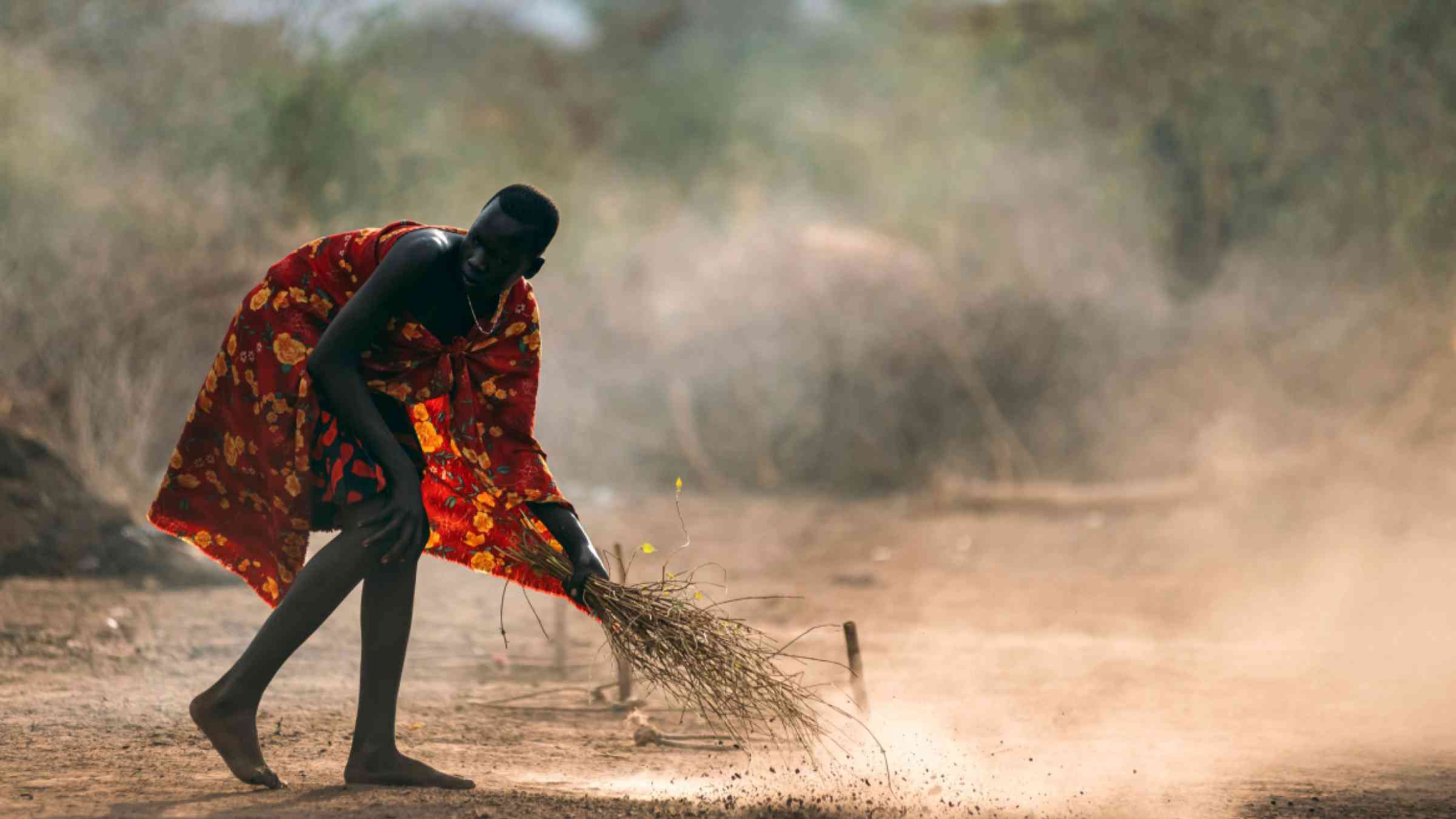COP27 Improving understanding of risk in humanitarian and fragile contexts

November 10, SHARM-EL-SHEIK – A new initiative to improve the understanding of climate and disaster risk in humanitarian and fragile contexts, was announced today at COP27 in Egypt at a side event organized by the UN Office for Disaster Risk Reduction (UNDRR).
UNDRR is supporting Governments and the United Nations bringing together humanitarian and development partners to jointly analyse and address risk factors that would impact on relief and development operations.
This work was first rolled out in South Sudan and has since been expanded to Sudan, Niger, Somalia and Eswatini.
Speaking from Juba, Ms Sarah Beysolow Nyanti, the Deputy Special Representative of the UN Secretary-General to the Republic of South Sudan, said ‘there are few other countries that really demonstrate the interconnectedness and cascading nature of risk like we have in South Sudan, a country that has endured appalling suffering and massive displacement due to political upheaval but also due to the serious climatic shocks and extreme weather events that make it very difficult for families to cope.
Ms. Nyanti told the COP27 event on ‘Understanding Risk in a Changing Climate’ that ‘one stark statistic says it all. 8.3 million people, almost 75% of the population of South Sudan do not have enough food to eat on a daily basis demonstrating the seriousness of famine which is caused somewhat by the climatic shocks that South Sudan faces.’
She also highlighted the country’s inadequate health systems in the face of the COVID-19 pandemic as she expressed serious concerns about the country’s ability not only to manage seasonal events and climatic shocks but to better manage overall risk and to avoid the creation of new risks.
Loretta Hieber-Girardet, UNDRR’s Chief for Risk Knowledge, said that UNDRR is supporting fragile states and humanitarian operations through the development of the Risk Information Exchange tool, or RiX, a platform to improve access and use of hazard, exposure, vulnerability and climate data to guide the country’s investments and actions to reduce disaster risk at national and local level.
The RiX in South Sudan is being launched as the Ministry of Humanitarian Affairs and Disaster Management develops a new National Disaster Risk Management Bill to enhance its efforts to implement the Sendai Framework for Disaster Risk Reduction and reduce its recurring losses from extreme events including floods, drought, and locust infestation.
Ms. Hieber-Girardet said: ‘This year an estimated 8.9 million people need humanitarian assistance including over two million internally displaced. South Sudan was still coping with standing water from the three previous years’ floods when this year’s floods arrived’.
Under the guidance of Ms. Nyanti and her staff in Juba, efforts are also underway to establish a Risk Management Unit to ensure a collective platform for analysis at national, state and area levels, including any emerging ‘hotspots.’ In support of this initiative, UNDRR in collaboration with OCHA facilitated a joint analysis of risk for humanitarian planning in August.
Over 40 experts came together from across the UN and other agencies to look at the priority risks anticipated in South Sudan in the coming 12 months and how these risks might interact with each other.
Underpinning this work was UNDRR’s Guide to Strengthening Climate and Disaster Risk Analysis in the Humanitarian Programme Cycle and the Risk Information Exchange (RiX) which aggregates over 600 global and national risk datasets from the UN and other sources spanning hazard, vulnerability, exposure, and climate change. Key information is geo-tagged and mapped in a visualisation tool.
The learning and insights will guide humanitarian and development planning for vulnerable communities across the country to save lives and reduce loss and damage at household level and in agriculture and industry.